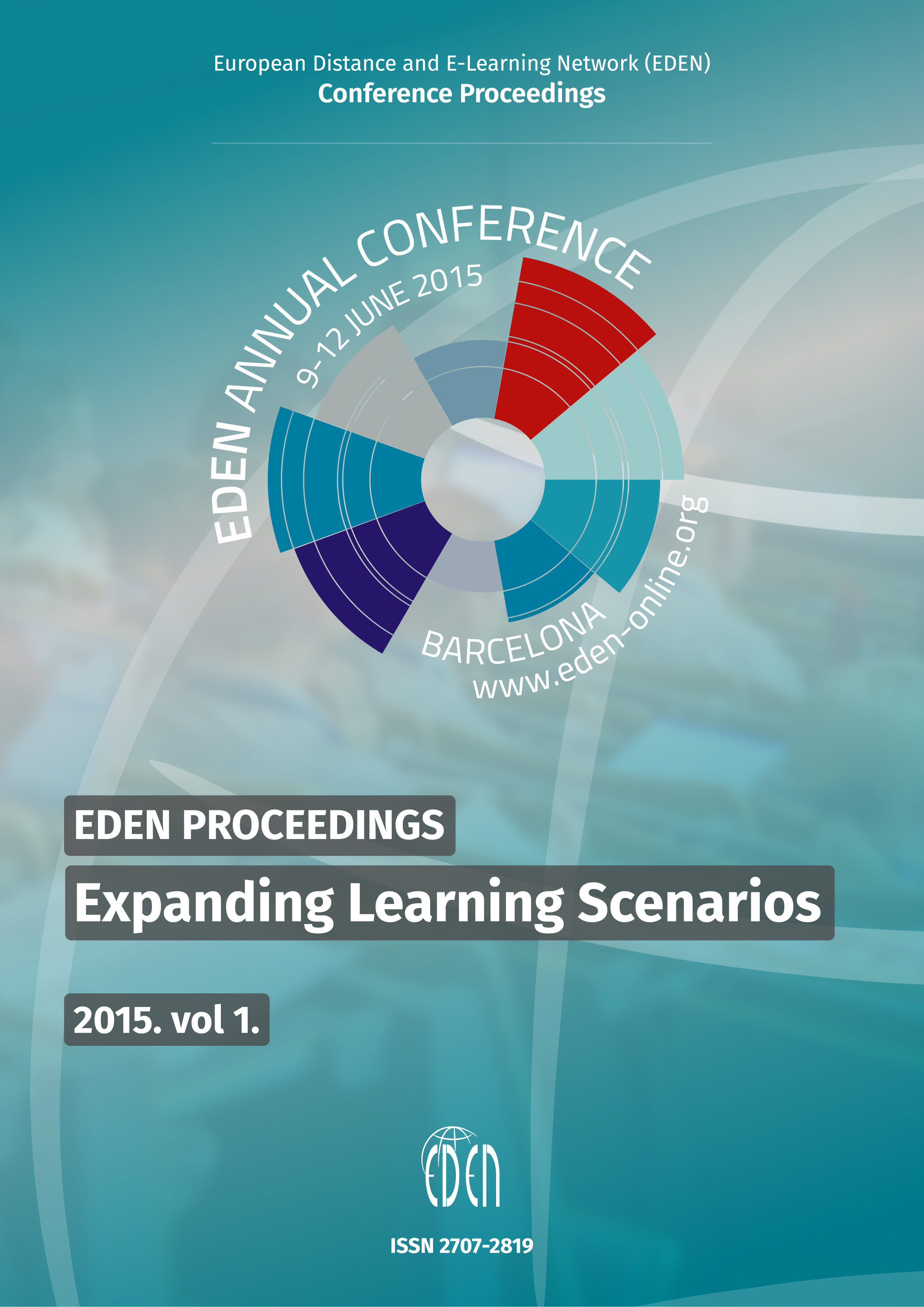Types of Participants' Behaviors in a Massive Open Online Course
Types of Participants' Behaviors in a Massive Open Online Course
Author(s): Tali Kahan, Tal Soffer, Rafi NachmiasSubject(s): Social Sciences, Education, Higher Education
Published by: European Distance and E-Learning Network
Keywords: Cluster Analysis; Distance and e-learning methodology; Educational Data Mining; Learning analytics; MOOCs; Online learning environments and platforms
Summary/Abstract: In recent years, there has been a proliferation of Massive Open Online Courses (MOOCs). Initiatives like Coursera, edX and Udacity provide platforms for higher education institutions to develop and deliver online courses to the general public. These courses are usually offered free of charge, with no preconditions or commitment, and attract massive numbers of registrants from around the world. From a pedagogical perspective, the courses (sometimes referred to as xMOOCs) follow a cognitive-behaviourist approach (Rodriguez, 2012; Daniel, 2012) and consist of diverse learning resources such as reading materials, video lectures, discussion forums, and assessments. Some courses give participants a statement of accomplishment or certificate upon successful completion of course requirements.
Journal: European Distance and E-Learning Network (EDEN) Conference Proceedings
- Issue Year: 2015
- Issue No: 1
- Page Range: 438-446
- Page Count: 9
- Language: English

